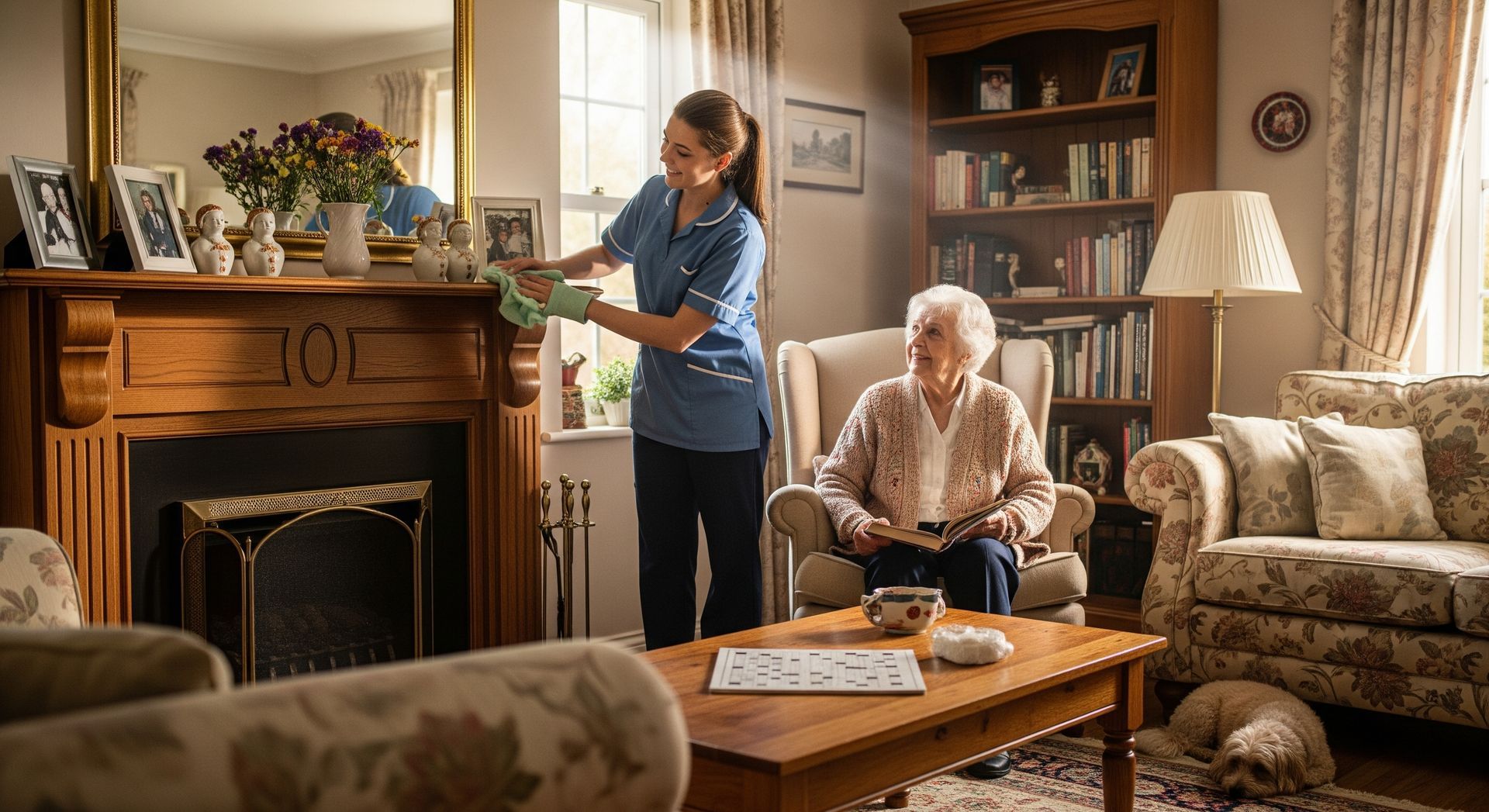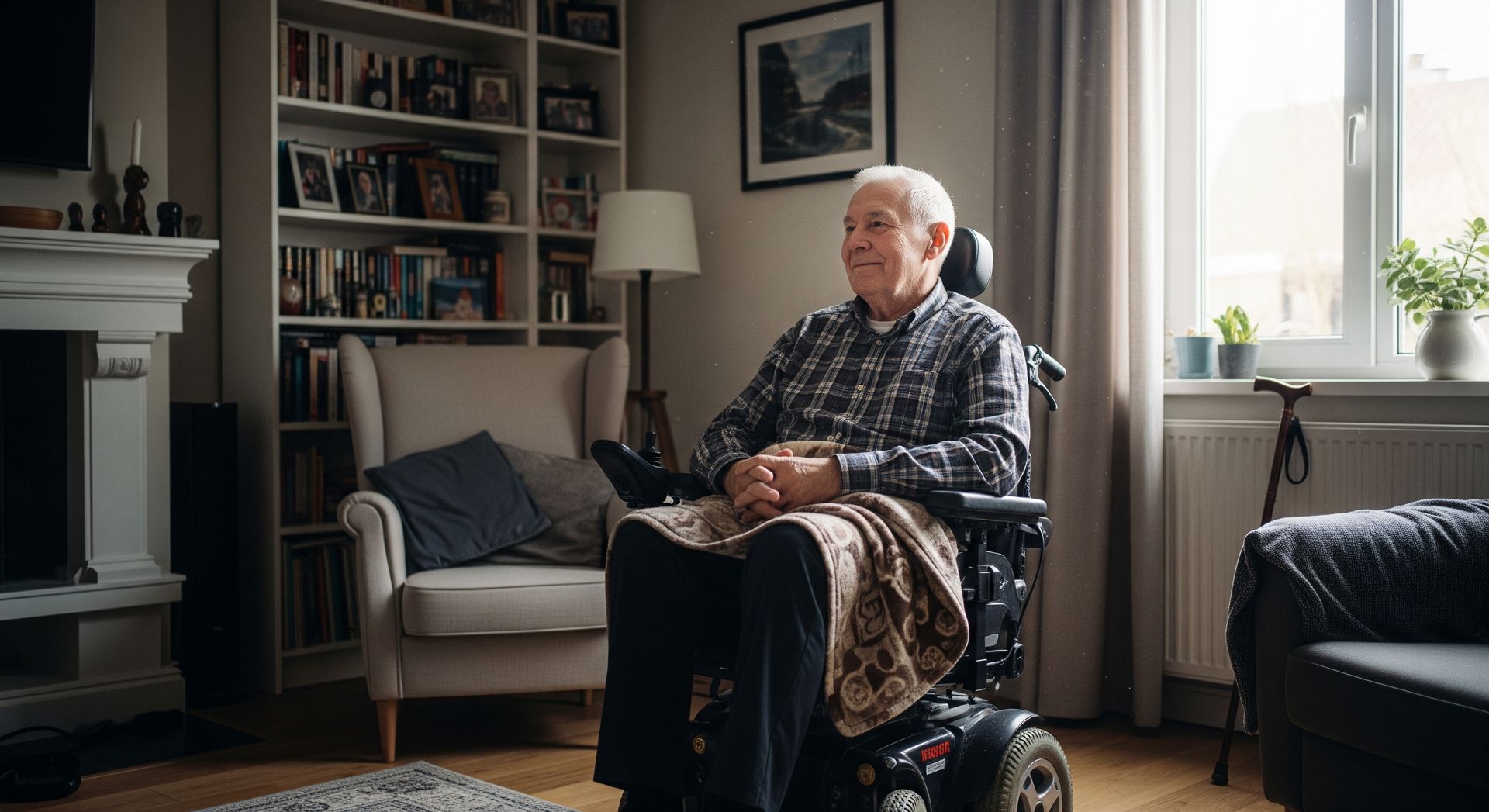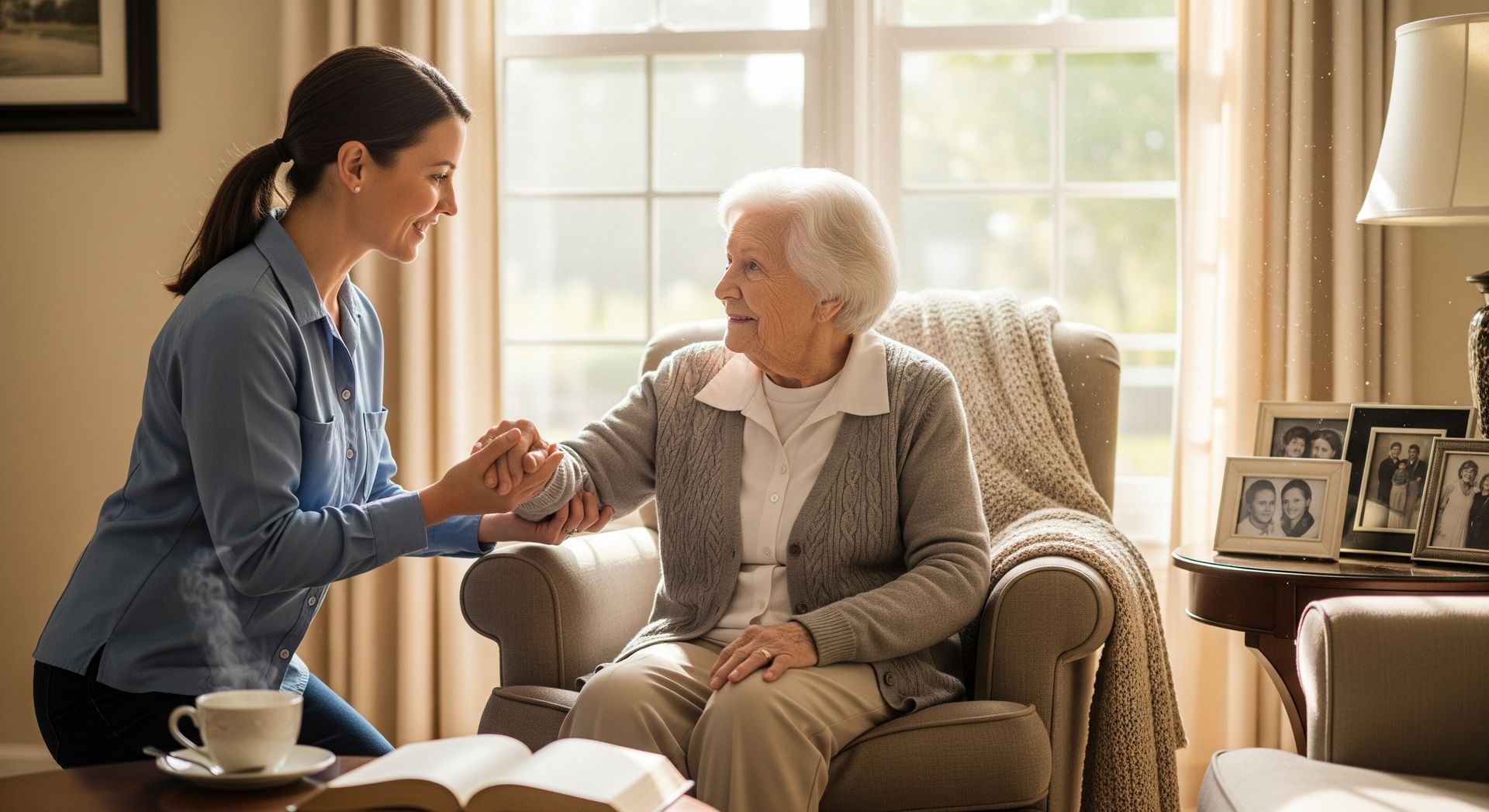What Is In-Home Care and How Does It Help Aging Adults?
Key Takeaways
- In-home care involves personalized support provided by trained caregivers within the aging adult’s own home environment.
- It assists with personal care tasks like bathing, dressing, meal preparation, and medication management to maintain independence.
- Companionship services reduce loneliness and promote emotional well-being for aging adults.
- Tailored care plans ensure the services meet individual needs, preferences, and promote a family-like atmosphere.
- In-home care fosters safety, comfort, and a familiar setting, enhancing quality of life for aging adults.
Understanding the Basics of In-Home Care
Starting the journey into in-home care might feel overwhelming, but it becomes much easier with the right guidance. It begins with an in-home assessment, where a friendly professional visits to learn about your loved one’s needs, routines, and preferences. This step ensures the care plan fits comfortably and truly reflects who they are.
The goal is to build a
supportive environment that feels as warm and familiar as family. Caregivers bring not just assistance, but
compassionate, skilled support tailored to each person’s unique situation. With their help, your loved one can keep enjoying the comfort of home while having the right level of care. In-home care focuses on maintaining independence, all while surrounding your loved one with thoughtful, caring support.
Types of Services Offered in In-Home Care
Every family has unique needs, and in-home care offers a flexible range of services to help make life safer and more comfortable for your loved one. Whether it’s assistance with daily tasks or simply offering companionship, these services can bring peace of mind to everyone involved.
Some of the most common options include:
- Personal care: Helping with bathing, dressing, and grooming so your loved one feels comfortable and confident.
- Companionship services: Sharing conversations, playing games, or taking walks to ease loneliness and brighten the day.
- Meal preparation: Ensuring healthy, tasty meals are ready and served when needed.
- Light housekeeping: Keeping the home tidy and safe with regular cleaning and organizing through homemaking services.
Together, these services create a
supportive environment where your family member can feel secure, valued, and connected. It’s like having a kind friend close by, always ready to help when needed.
Benefits of In-Home Care for Aging Adults
In-home care helps you stay independent while still having the right support close by. It focuses on
personal care designed around your lifestyle, ensuring you get exactly what you need without feeling like just another number. Having someone there each day can also bring comfort and companionship, helping to
boost your mood and keep loneliness away, much like the warmth of a good neighbor who’s always ready to lend a hand.
Enhanced Independence Support
Growing older can bring changes, but in-home care makes it possible to stay comfortable and independent at home. It focuses on independence enhancement, building a supportive environment that helps you feel empowered each day.
With care that matches your pace and respects your choices, you stay in control while knowing you have help when you need it. In-home care strengthens your independence in many ways:
- Helping with daily activities without taking away your freedom
- Encouraging you to make decisions for yourself
- Offering companionship to ease loneliness
- Keeping your home safe and welcoming
With this support, you can truly enjoy life and thrive in the place you love most, surrounded by familiar comforts and the reassurance of a friendly hand nearby.
Personalized Care Services
Aging at home feels more comfortable when care reflects who you are. Personalized care services bring customized care shapes around your unique lifestyle and health needs, so nothing feels generic or routine. With individualized support, caregivers help with daily tasks, offer reminders for medications, and even make time for the activities you love. You’re treated as a valued person, not just a client, and your preferences guide every part of your care.
This approach builds confidence and comfort, helping you feel secure and respected in your own space, especially with things like
emergency assistance. It turns aging at home into a more personal and fulfilling experience, giving you the freedom to keep living life on your terms.
Emotional and Social Benefits
In-home care goes far beyond help with daily tasks. It also plays a big role in supporting your emotional and social well-being, helping you feel connected and valued each day. Having someone around doesn’t just make life easier—it boosts your mood and eases feelings of loneliness. In-home care combines practical help with genuine companionship, keeping both your heart and mind feeling positive and fulfilled.
Here’s how this kind of care makes a difference:
- Brings regular conversation and activities to keep you engaged
- Offers comfort and understanding during challenging moments
- Helps you stay in touch with friends through visits or phone calls
- Builds a sense of belonging so you never feel alone
How In-Home Care Supports Independence
Growing older doesn’t mean giving up the comfort and freedom of your own home. In-home care focuses on independence strategies that match your unique needs, making everyday life easier while keeping you in control. Instead of feeling overwhelmed, you get help with daily activities like cooking, all-around cleaning, or moving around safely, so you can keep enjoying the things you love.
This kind of care works as a partnership, helping you feel confident and capable while staying
connected to your neighborhood and routines that bring you joy. Having support close by means you don’t have to worry about
little things piling up. It’s like having a
friendly sidekick ready to lend a hand, making sure your home remains a place where you feel secure and independent.
Cost Considerations and Payment Options
Understanding in-home care costs early on can make the process feel more manageable. Start by looking into insurance options, such as Medicare or private coverage, which may help with certain services. This step alone can ease the financial pressure and help you plan ahead with more confidence.
Good financial planning also makes a big difference. Setting a clear budget and knowing what fits within your means helps reduce stress and keeps things realistic. It’s worth checking for assistance programs in your community as well—many families discover valuable resources this way.
Balancing
quality care with affordability takes time, but it’s completely possible when you take small, informed steps. Staying open with your family and care providers helps everyone stay on track. With a little guidance, you can find a care solution that fits your needs, supports your routine, and protects your
peace of mind.
The Role of Family in In-Home Care Arrangements
Family Communication Importance
Keeping communication open among family members might feel a little awkward at first, but it makes a huge difference when planning in-home care for an aging loved one. Good conversations help build trust, ensure everyone’s voice is heard, and keep misunderstandings at bay.
Here are some simple ways to keep things running smoothly:
- Schedule regular family check-ins to talk about updates or concerns.
- Listen carefully so that even quieter family members feel included.
- Speak in clear, simple language to avoid any confusion.
- Be honest about your feelings, but always stay respectful to maintain peace.
Coordinating Care Responsibilities
Open and honest conversations among family members lay the groundwork for strong teamwork when handling care needs. In-home care, caregiver collaboration makes all the difference. Dividing tasks helps ease the workload and ensures every family member feels involved and appreciated.
Much like a well-coordinated team, each person brings unique strengths to the table. When families share responsibilities and communicate regularly, caring for a loved one becomes smoother and far less stressful. Working together keeps everyone connected and focused on the shared goal of providing the best support possible.
| Task | Family Member | Notes |
|---|---|---|
| Medication | You and Sibling A | Double-check doses daily |
| Meal Prep | Cousin B | Rotate cooking every other day |
| Transportation | You | Coordinate doctor visits |
Frequently Asked Questions
Can in-home care help with specific medical conditions?
Yes, in-home care can be tailored for medical needs. Skilled professionals complete detailed assessments and create care plans that help you manage health conditions comfortably at home while staying connected to the people and routines you love.
How do caregivers respond to emergencies or sudden health changes?
Caregivers follow strict safety protocols and watch for health changes during regular check-ins. If an emergency arises, they act quickly to keep you safe and ensure you get the right help without delay.
What training do in-home caregivers have?
Caregivers complete certified training programs that prepare them to provide skilled, compassionate care. Their qualifications help families feel confident that their loved ones are in capable hands.
Are there technology tools used in in-home care?
Yes. Tools like telehealth services and wearable devices help track health, improve communication, and offer peace of mind for both clients and families.
Does in-home care support mental health for seniors?
Absolutely. Regular visits, conversation, and emotional support help reduce feelings of loneliness and boost overall well-being, helping seniors feel valued and connected.
Final Thoughts
In-home care offers so much more than basic help—it’s like having a reliable companion who’s there whenever you need them. It helps aging adults stay comfy, safe, and independent, while also giving families peace of mind. Choosing the right care isn’t just another task on a to-do list; it’s about finding a solution that feels right for everyone involved. With a little extra support, life at home can remain enjoyable and stress-free, allowing older adults to keep living on their own terms.
If you’re ready to explore how in-home care can make life smoother for you or a loved one, reach out to the caring team at SCC At Home. They’re dedicated to providing personalized support that fits your unique needs.
Contact SCC At Home today and discover the difference compassionate, professional care can make.








